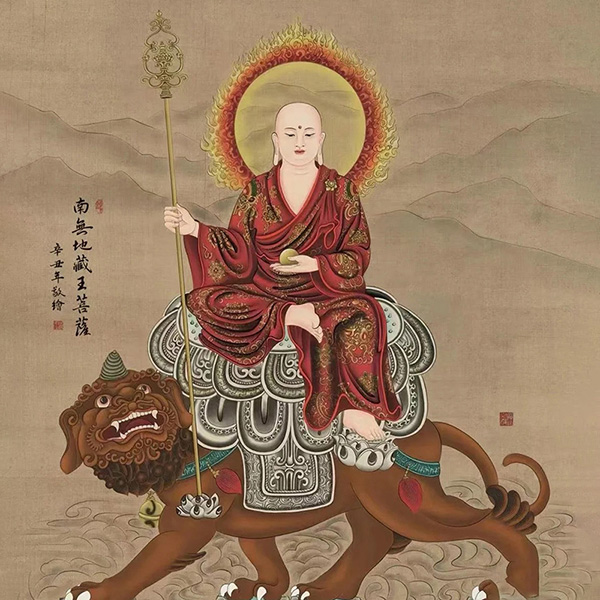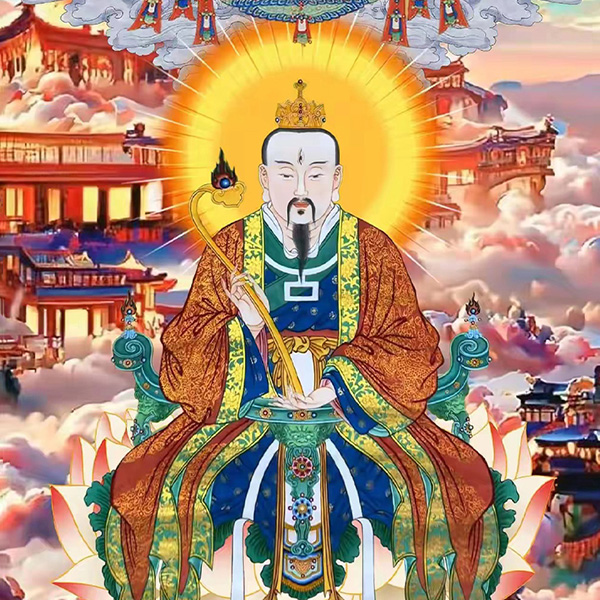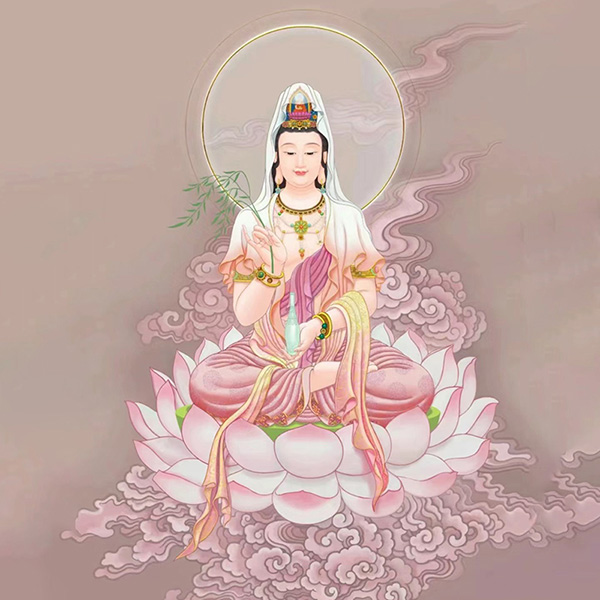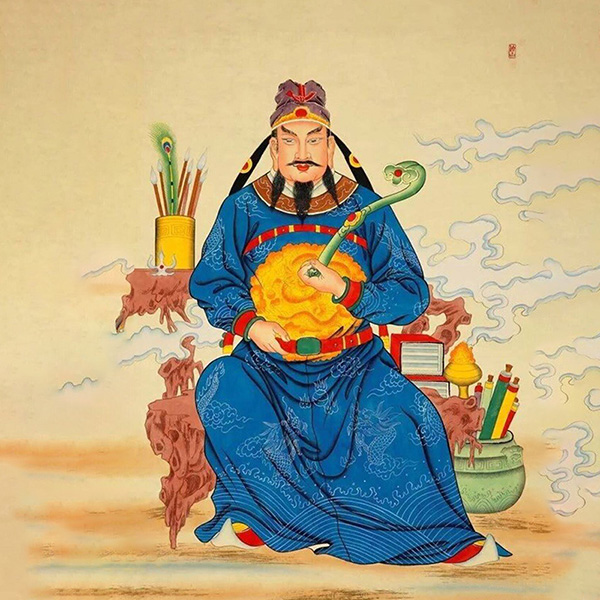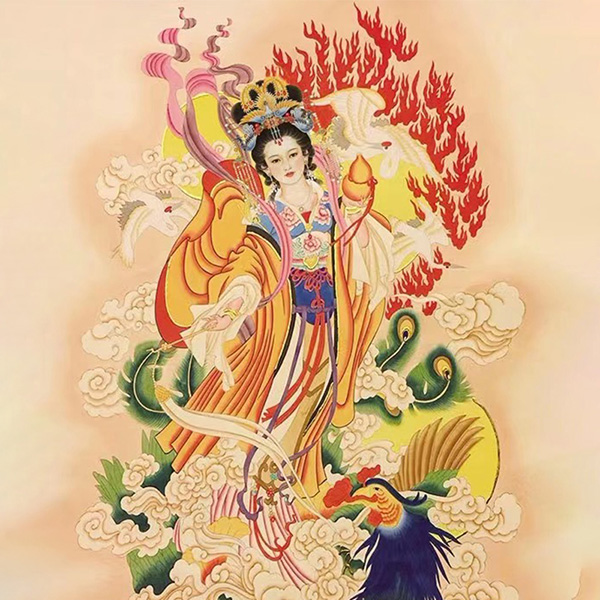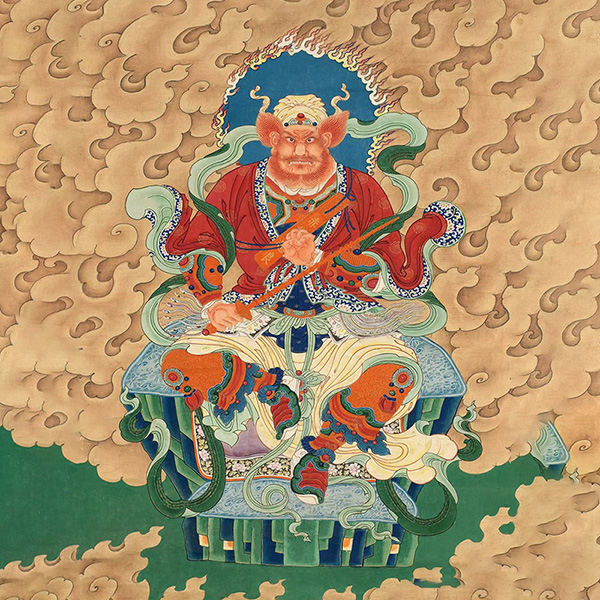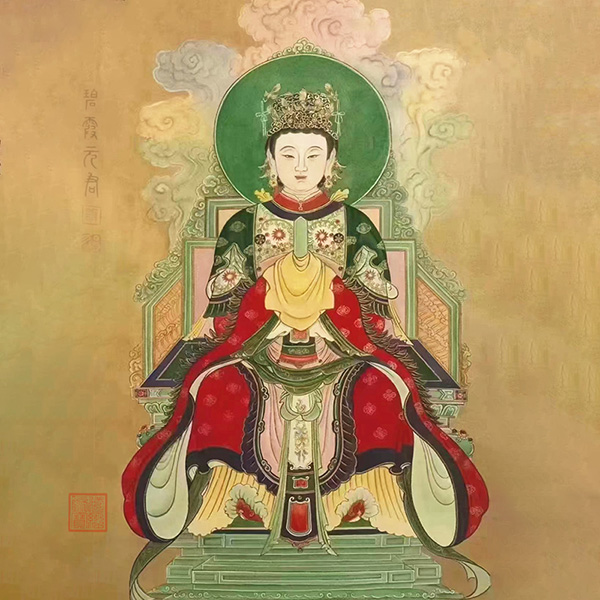
Bixia Yuanjun is a mountain god belief (Taoism) centered on North China on the Chinese mainland. In Taoist scriptures, she is called “Celestial Fairy Maiden Bixia, Guardian of the World and Great Benefactor True Person” and “Celestial Fairy Maiden Baosheng True Person, Hongde Bixia Yuanjun”. Since she is in charge of Mount Tai, she is respectfully called the Holy Mother of Mount Tai, Bixia Yuanjun, commonly known as the Lady of Mount Tai. Her full title is “Celestial Fairy Maiden Bixia Yuanjun of Mount Tai, the Eastern Sacred Mountain”. Her religious center is on Mount Tai, the most revered of the five sacred mountains in China, located in Tai’an City, Shandong Province.
The influence of Bixia Yuanjun spread from Tai’an City, Shandong Province. After thousands of years, especially after the Ming and Qing dynasties, it had a significant impact on the culture of northern China. Taoism believes that Bixia Yuanjun “protects all living beings and responds to the nine regions”, “commands the divine soldiers of the Mountain God’s Residence and examines the good and evil of the human world”. She is an important goddess in Taoism and one of the most influential goddesses in Chinese history.
The saying “Bixia Yuanjun in the north and Mazu in the south” among Chinese people refers to that although there are regional differences and the distinctions between mountain god and sea god between Bixia Yuanjun and Mazu, they both (help all living beings) and sacrifice themselves for others, becoming renowned protective goddesses in the north and south. “Bixia” means the rosy clouds of the sun in the east, and “Yuanjun” has a strong Taoist color and is a respectful title for Taoist goddesses.
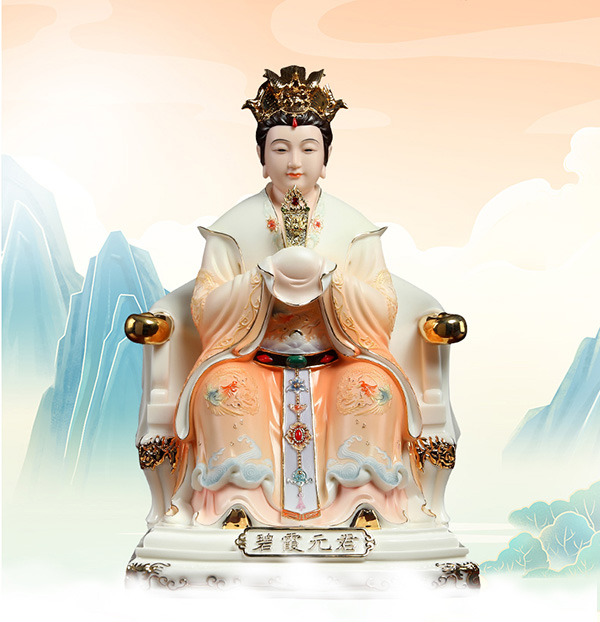
Bixia Yuanjun. Full name in Taoism: Celestial Fairy Maiden Bixia Yuanjun of Mount Tai, the Eastern Sacred Mountain. People affectionately call her: Grandmother of Mount Tai, Lady of Mount Tai, Holy Mother of Mount Tai, Celestial Holy Mother, etc. Her religious center is on Mount Tai, the most revered of the five sacred mountains. The birthday of Celestial Fairy Maiden Bixia Yuanjun of Mount Tai, the Eastern Sacred Mountain is on the 18th day of the fourth lunar month. For thousands of years, people have held Bixia Yuanjun in extremely high esteem. Bixia Yuanjun is approachable, amiable, and generous in giving. For thousands of years, people have held Bixia Yuanjun in extremely high esteem.
Bixia Yuanjun can bring blessings to all living beings and fulfill their wishes. The poor wish to be rich, the sick wish to be healthy, farmers wish for a good harvest, merchants wish for peace, those who pray for life wish for a long life, those without children wish for offspring, children wish for the well-being of their parents, younger brothers wish for the well-being of their elder brothers. Relatives with deep affection all have their wishes, and the goddess always responds sincerely to every wish.
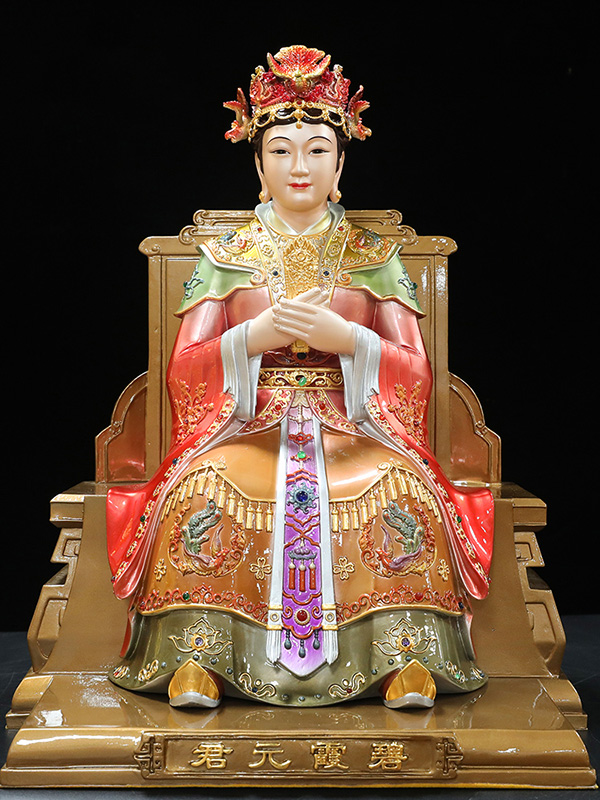
In the eyes of the people, Bixia Yuanjun is even more powerful. She can bless farming, business, travel, and marriage. She can cure diseases and save people. In particular, she can help women give birth and keep children safe. Therefore, in the old days, women had especially devout beliefs in Bixia Yuanjun. Not only is there a temple on Mount Tai, but there are also many “Lady Temples” built in various places. And often, four ladies, namely the Lady of Bestowing Offspring, the Lady of Hastening Childbirth, the Lady of Eyesight, and the Lady of Smallpox, are enshrined on both sides as attendants. This kind of belief is still very prosperous today. People still take great pains to climb to the top of Mount Tai, make vows and fulfill them, pray to her, and the incense is continuously burning.
In Chinese folk beliefs and religious culture, Grandmother of Mount Tai, also known as Bixia Yuanjun, holds a highly respected and significant position.
Appearance and Symbolism:
Bixia Yuanjun is often depicted as a noble and benevolent goddess. She is usually shown wearing elegant robes and a crown, exuding an aura of grace and dignity. She is often associated with symbols such as clouds, mountains, and lotus flowers, which represent her connection to nature and her purity.
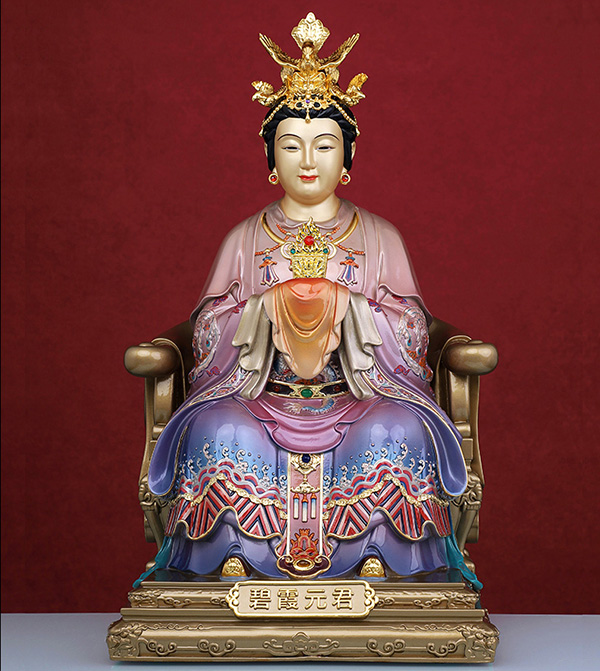
Virtues and Qualities:
Compassion and Benevolence: She is renowned for her boundless compassion and kindness. She is believed to care deeply for all living beings and is always ready to offer help and comfort to those in need.
Protection and Blessings: As the goddess of Mount Tai, she is regarded as a powerful protector. People believe that she can shield them from disasters and bring blessings of health, safety, and prosperity.
Wisdom and Guidance: Bixia Yuanjun is also associated with wisdom and guidance. People often seek her advice and inspiration in times of confusion or difficulty.
Fertility and Life-Giving: In some traditions, she is also associated with fertility and life-giving powers. She is believed to bless women with safe childbirth and bring prosperity to families.
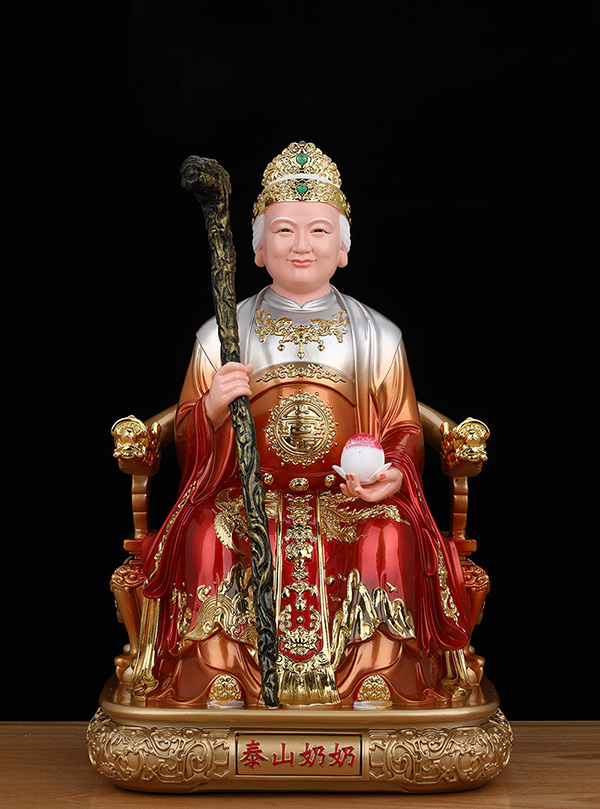
Significance in Folk Beliefs:
In Chinese folk beliefs, Grandmother of Mount Tai is highly revered and worshipped. Temples dedicated to her can be found on Mount Tai and in many other places. People offer incense, prayers, and offerings to seek her blessings and protection. Her worship is deeply ingrained in Chinese culture and has a long history.
Cultural and Historical Significance:
The worship of Bixia Yuanjun reflects the deep connection between people and nature, as well as the importance of compassion, protection, and wisdom in Chinese society. Her story and legend have been passed down through generations, enriching the cultural heritage of China.
Grandmother of Mount Tai, Bixia Yuanjun, is a remarkable figure in Chinese folk beliefs and religious culture. Her compassion, protection, wisdom, and fertility make her a source of inspiration and hope for many. Her presence continues to have a profound impact on the spiritual and cultural lives of people, reminding us of the beauty and power of nature and the importance of kindness and compassion.
